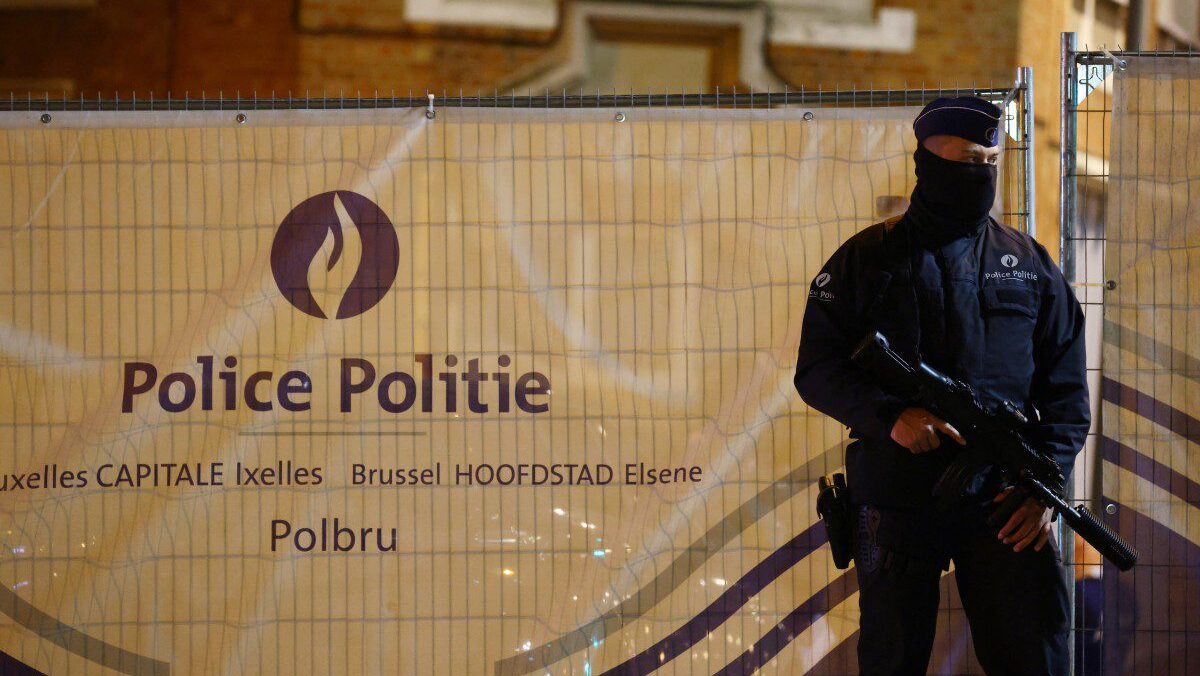
A Belgian police officer stands in a street after two people were killed during a shooting in Brussels on October 16, 2023.
Photo: Kenzo TRIBOUILLARD / AFP
The Belgian government continues to deal with the aftermath of the Brussels terror attack last week that killed two Swedish nationals. This has already led to the resignation of the country’s justice minister and a new investigation into the functioning of the Brussels prosecutor’s office.
Minister of Justice Vincent Van Quickenborne resigned from his post after taking responsibility for the failure to extradite gunman Abdesalem Lassoued to his native Tunisia. The country had requested he be sent back in August of 2022 to serve the remainder of a 26-year prison sentence.
Lassoued, who was recognized by Tunisian authorities as an Islamic extremist, escaped from prison in 2011 where he was serving a sentence since 2005 for several attempted murders. That same year, he took a boat to the Italian island of Lampedusa and entered Europe illegally.
Brussels Prosecutor General Johan Delmulle and Public Prosecutor Tim De Wolf both confirmed that an extradition request from Tunisia had been made. However, they said their office had been understaffed and the request had been forgotten.
“None of the colleagues involved remember what became of this specific file a year ago. There is no trace of it being handled,” De Wolf said.
On Monday, the Belgian High Council of Justice (CSJ) announced it would be investigating the Brussels prosecutor’s office regarding the attack carried out by Lassoued.
“Many events preceded this attack, including the fact that Abdesalem Lassoued’s case was not dealt with until its conclusion within the Brussels prosecutor’s office,” the CSJ said in a statement published by broadcaster RTBF.
“The former Minister of Justice, Vincent Van Quickenborne, assumed political responsibility for it and consequently resigned from his post. One of the roles of the CSJ is to improve the functioning of the justice system for the benefit of the citizens, in particular through external control. The CSJ is the institution responsible for independently and objectively examining the dysfunctions of the judicial system,” the CSJ added.
The High Council of Justice went on to state:
The Commission of Opinion and Inquiry, which has convened, has decided today to initiate a specific investigation into this case, which will focus on the functioning of the judicial system as well as on the context and elements that led to its dysfunction, and not on individual responsibilities. Recommendations will be made to ensure that such events do not happen again. Citizens have a right to it. The magistrates who work every day for the rule of law are also involved. Justice deserves it.
Meanwhile, neighbouring France has found at least four people who were in contact with the terrorist.
The first, a man from Nantes, was arrested last week and is believed to have received communications from Lassoued just prior to his attack. He is also believed to be a Tunisian national.
Three others were also taken into custody by French police in the Loire-Atlantique, Maine-et-Loire and Paris regions, although two have since been released, according to France’s National Anti-Terrorism Prosecutor’s Office (PNAT).
Two of those arrested are facing criminal charges of terrorist conspiracy and complicity in murder in connection to a terrorist enterprise, and have been kept in pretrial detention.
Both of those facing charges are Tunisian men in their 40s and 50s, the former having lived in France for around twenty years.
The lawyer for one of the suspects claimed that his client had nothing to do with the attack but knew Lassoued previously saying he was “a friend he had known for a long time, of whom he had not seen any sign of radicalization. He could never have imagined such a move to action.”
The Belgian Federal Prosecutor’s Office and the French National Anti-Terrorism Prosecutor’s Office are expected to meet to decide whether the investigation of the two men will be transferred to Belgian authorities.
